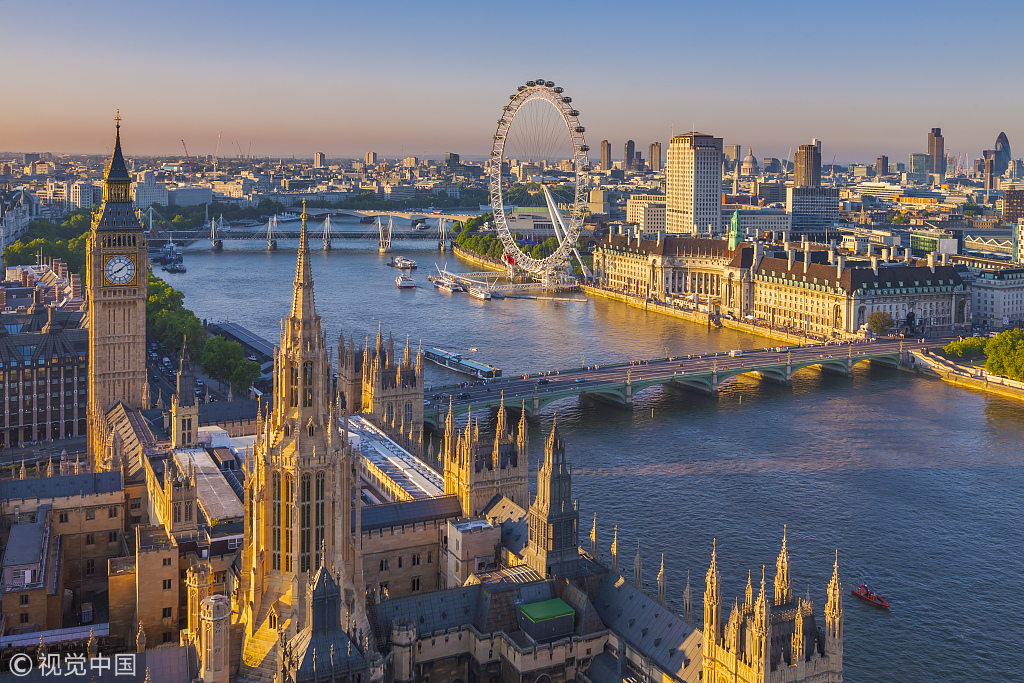The election of two fears
By Jonathan Arnott | CGTN | Updated: 2019-12-12 11:40

Editor's note: Jonathan Arnott is a former member of the European Parliament. The article reflects the author's opinions, and not necessarily the views of CGTN.
On December 12, the United Kingdom will go to the polls in an election which will determine Britain's course for the coming generation, not just the next five years. Not since the 1980s has there been such a stark choice between the two leading parties. This is not an election defined by competing visions for a 21st century nation, but one defined by competing fears.
The first fear, from those who voted to Remain in the European Union back in 2016, is the fear of Brexit. In the event of a Conservative victory this week, Boris Johnson's so-called "oven-ready" Brexit deal will lead inevitably to Britain leaving the European Union on January 31. Such fears are being exploited by Labour in particular: They claim that a UK-US trade deal would put the National Health Service "up for sale."
The leaked documents they cite show merely that two years ago the US would have liked such access; the British government had no intention of conceding – and the US government has since changed its policy, but it's an election campaign: Attacks are overblown. The Liberal Democrats' campaign tactic is similar: A simple appeal to "stop Brexit." Traditional party loyalties are weakening. Just 16 percent of voters now "strongly identify" with a political party, but almost 50 percent "strongly identify" as Leave or Remain (according to the British Election Survey). Society is split in three directions: Those who actively want Brexit, those who actively oppose Brexit, and those who simply accept the 2016 referendum result as a mandate for Brexit – irrespective of personal opinion.
The second key fear is the fear of Jeremy Corbyn. In 2017, when Labour outperformed expectations, Jeremy Corbyn's net favorability ratings were 30 points higher than they are today according to top polling company Ipsos-MORI. The Labour Party has even fallen behind the Conservatives among working-class voters, supposedly Labour's natural support base. Under Corbyn's leadership, the Party is being investigated by the Equalities and Human Rights Commission after multiple allegations of anti-Semitism. Their economic policy is much further to the Left than anything seen in the UK for a generation. The Conservative Party responded by setting up a website, costofcorbyn.com, to showcase all the new taxes which they say Labour would need to fund their policy.
Labour Remain supporters will still vote Labour at this election, and Conservative Leave supporters will doubtless still vote Conservative. Their views of Brexit and traditional political parties are well aligned. Traditional Labour Leave voters are moving across to the Conservatives in substantial numbers because their desire for Brexit coincides with their dislike of Jeremy Corbyn.
The biggest question though is what happens with Conservative Remain supporters: They are being asked, directly, to choose between their two fears. Are they more scared of Jeremy Corbyn, or of Brexit? That is the issue which will ultimately decide this election.
As traditional loyalties mean less, elections become harder and harder to predict. Even Paul Hilder, the chief executive of analytics firm Datapraxis, which uses the type of model which correctly predicted the 2017 election result, admits that "We have never seen as many undecided voters this late in the campaign." In such circumstances, predicting what will happen on Thursday becomes incredibly difficult. As old allegiances die out and new ones are formed, I expect a lot of seats to change hands in conflicting directions.
The Conservative Party will surely "win" the election in the most basic of terms – it will receive more seats than any other party. That isn't the target though: Lacking potential partners in government, they really need more seats than all other parties combined in order to be able to deliver on their vision and campaign slogan of "Get Brexit Done." Otherwise, Jeremy Corbyn could yet become prime minister. I estimate the Conservatives need to be around six percent to seven percent ahead of Labour in order to win an overall majority and be able to govern alone. The opinion polls are varied: Some show a lead of six percent, right on the borderline. Others show a lead as wide as 15 percent, which would give the Conservatives a landslide victory.
Polling company Survation asked people which party they believe has had the best campaign so far. The response was predictable in an election dominated by negativity: "Don't know" was the most popular option. In such a chaotic election, it's difficult to make any firm predictions. As things stand, the Conservatives stand to get the overall majority that they crave – but a small movement, either way, could lead to anything from a landslide to a hung Parliament.
By Friday, it will be clear which of the two fears has prevailed.























